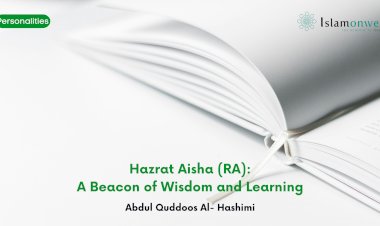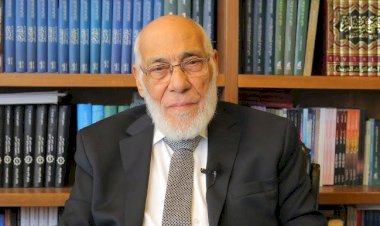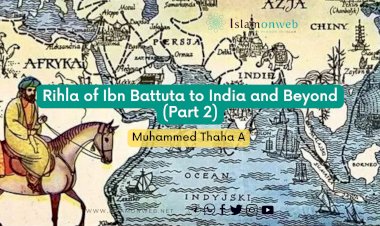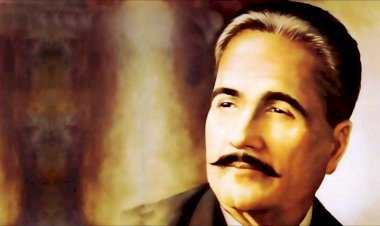Allama Anwar Shah Kashmiri: A Pillar of Hadith Scholarship in the Indian Subcontinent
Introduction
Hadith is the branch of science and knowledge that elucidates the words of God and explains the Quranic revelations. The hadith literature means the literature that consists of the narration of the Prophet Muhammad ﷺ and the things approved by him. Many prominent scholars have been born in several parts of India in the hope of flourishing the Sunnah tradition. And one of them was Allama Anvar Shah Kashmiri, who was a great scholar of the Indian subcontinent and a versatile genius.
Anwar Shah Kashmiri, a luminary in the domain of hadith scholarship, played a pivotal role in preserving and disseminating the teachings of the Prophet Muhammad ﷺ in the Indian subcontinent. His extensive expertise, precise methodology, and unwavering commitment earned him the revered title of 'Allamah' (learned scholar) and positioned him among the foremost authorities in hadith studies of his era.
Early Life of Anwar Shah Kashmiri
Born in November 1875 in the Dudwan Valley of Kashmir, Anwar Shah began his Quranic studies at a young age, learning its recitation under the guidance of his father, Mawlana Gualam Muhammad Rasunipura. At 13, he moved to Hazara to pursue higher education for three years before affiliating himself with Gangoh, where he studied under renowned scholars like Khalil Ahmed and Gulam Rasool. His quest for knowledge led him to Gujarat, where he spent three years and established a madrasa called Faize-Aam, dedicated to promoting the tradition of hadith.
Shah Kashmiri’s Literary Works
Allamah Kashmiri had very little inclination towards writing and compiling. He always remained engrossed in studying works by eminent scholars. He did not like to earn his name, fame, and money through authorship. However, some circumstances compelled him to write on some controversial issues. Thus, some valuable treatises came out of his pen. Moreover, some of his brilliant students collected his classroom lectures and discourses and compiled them in the form of books under different names concordant with the material they contained. Allamah Kashmiri’s works fall into two divisions. One, those books and treatises that he wrote from time to time; second, the classroom lectures, discourses, and sermons collected by some of his capable students. They were too authentic to be doubted. Some of these collections have been revised by him, and on his approval, arrangements for their printing and publishing were made. Some of his writtens works include:
Mushkilāt al-Qur’an
Mushkilat al-Qur’an is a book predominantly written in Arabic; however, passages within the Farsi language also appear at some stages of the work. The most important goal of this venture was to jot down such work was to interpret the most effective ones of the verses of the Holy Qur'an, which are usually taken into consideration to be very tough to understand.
Ikfār al-Mulḥidīn
In the light of the Qur’anic injunctions, the prophetic tradition, and the sunnah of Khulafa-e Rashideen, the author discussed faith (Imān) and infidelity (Kufr). He draws a well-defined outline between Islam and infidelity. In his opinion, it is a capital crime to call a Muslim infidel, and at the same time, it is a perdition if we call a transgressor a Muslim. Allamah Kashmiri has devoted a portion of this work to the definition and delamination of the terminologies like Zindīq (infidel), Mushrik (idolater), and Munāfiq (hypocrite). He has elaborated on the position and status of each of them in conformity with Sharia’.
‘Aqīdat al-Islām Fi Ḥayāt 'Isā
It is a unique literary work insofar as its subject matter is concerned. In this book, Allamah Kashmiri discusses the miraculous birth and subsequent ascension of Prophet 'Isa (a.s.).
Darb al-Khātim ‘Alā Hudūth al-‘Ālam
This treatise of 400 verses introduced Allamah Kashmiri as a philosophical poet in the contemporary world of letters, and it was written in Arabic. It was written in the structure of verses to encourage the pupils of Islamic Studies to easily get a handle on its message.
Baśt al-Yadayn
This work contains further research on the decision related to the unfolding of one’s hand while being occupied in Salah. This work consists of sixty-three (63) pages in Arabic, and it is a kind of enhancement of the earlier work on a similar subject. It was first published in 1932 AD in Delhi, and its subsequent edition appeared in Karachi in 1996 AD.
Shah Kashmiri As A Hadith teacher
Anwar Shah Kashmiri played a significant role in the field of hadith literature. Initially, he sought permission from his teacher Mahmud-Al-Hasan to teach hadith literature. He later taught in Hijaz for some years before returning to Darul Uloom Deoband in 1333 A.H., where he contributed for four years. However, he resigned due to issues with certain activities. He then established a new madrasa called Jamia Islamia in Dhabil, Gujrat, aiming to promote the study of hadith literature. He was highly regarded as an exceptional teacher and introduced innovative teaching methods in several institutions. Mufti Mahmood, a proficient student from Deoband, once praised Anwar Shah Kashmiri as an unparalleled teacher, likening him to none other than Hazrat Shah Wali Ullah, a renowned writer from India.
Anwar Shah Kashmiri authored several books in the field of hadith literature, among which the most renowned are:
Anwārul Maḥmūd Fī Sharḥ Sunan Abi Daud: This book is in two volumes. It is a commentary on the Sunan of Abu Daud. It comprises the annotations and discourse of Anwar Shah while teaching his students Sunan Abu Daud.
Al-Arf al-Shaddi Alā Jami’al Tirmidhā: This is an Arabic commentary on Jami Tirmidhi. This book contains the annotations and lectures of Anwar Shah delivered during his teaching life.
Sharḥ Urdu Saḥīḥ Bukhārī: This book is a commentary on Bukhari Sharif which was written in Urdu.
Faiḍh al-Bāri fī Sharḥ-e- Saḥīḥ al-Bukhārī: This is one of the famous books. It is a collection of his lectures on Bukhari. This is a popular commentary on Bukhari in Arabic.
Conclusion
Allama Anwar Shah Kashmiri remains a standout among the esteemed Islamic scholars of Kashmir, leaving behind a legacy that continues to inspire scholars across generations. His influence ensures that the teachings of the Prophet endure as a guiding force for Muslims worldwide. Understanding the significant role Anwar Shah held in the field of hadith prompts us to explore further the remarkable contributions of such scholars. Their impact not only shapes historical narratives but also enriches our contemporary comprehension of Islamic principles. Delving into their works reveals the depth of Islamic scholarship, offering profound wisdom that sparks a timeless quest for knowledge and spiritual enlightenment among those seeking truth and insight.
Endnote:
Muhammad Anvar Shoh Kashmiriy. Fayzul boriy sharhu Sahihil Buxoriy”. Darulihyai-t-turosalarabiy. Bayrut, 2005.
Muhammad Anvar Shoh Kashmiriy. Arfu-sh-shaziy 'ala Jomi'iTermiziy”. Darul kutub ililmiyya, Bayrut,
Muhammad Yusuf Bannuriy.Nafhatulanbar fi hayatiAnvar.–Karotishiy: Maktabatul Bannuriyya.2 nashr.1424.–B. 349.
Briggs, John. History of the Rise of the Mohamedan Power in India. New Delhi. Oriental Press. 1981.
Desai, Ziyaud-din A. Centres of Islamic Learning in India. Simla. Government Press. 1978.
Doi, Abdur Rahman. Sharia, the Islamic Law. London. Delux Press 1984.
Hasan Qamar. Muslims in India. New Delhi. Northern Book Centre. 1988.
Lajpuri, Abdur Rahim. Fatawa Rahimiyyah. Rander. MaktabRahimiyyah, n.d. 3 Vols.
Disclaimer
The views expressed in this article are the author’s own and do not necessarily mirror Islamonweb’s editorial stance.
























Leave A Comment